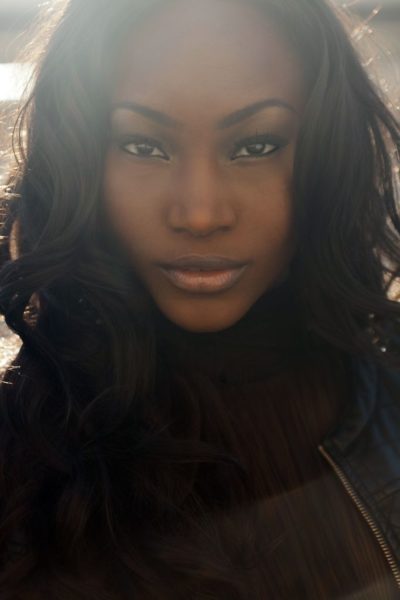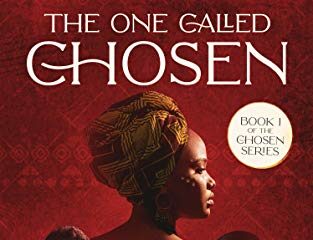News
Isio Knows Better: Too White For Your Own Good
 I sincerely lay no claims to being more knowledgeable than anyone, but I do confess that I know better than I did yesterday, last year and a decade ago. Isio Knows Better is an attempt to capture the shocking and highly entertaining conversation within myself. The conversations between my mind (the sharp witty one), my soul (the lover and the spiritual one) and my body (the playful one concerned with the more mundane things of life). She is the eternal referee between the caustic mind and the sensitive soul. This is Isio. So, here’s to making private conversations public.
I sincerely lay no claims to being more knowledgeable than anyone, but I do confess that I know better than I did yesterday, last year and a decade ago. Isio Knows Better is an attempt to capture the shocking and highly entertaining conversation within myself. The conversations between my mind (the sharp witty one), my soul (the lover and the spiritual one) and my body (the playful one concerned with the more mundane things of life). She is the eternal referee between the caustic mind and the sensitive soul. This is Isio. So, here’s to making private conversations public.
Enjoy!
***
It was the Fall of 2012, and a beautiful Florentine Fall it was. Italy was so beautiful that time of the year. And so it was, that on that spring morning, in our design school, we, the students from many nations- had all gathered in class, to listen to our teacher teach us something about emotional design.
We were supposed to be listening, and we tried. Only that it was difficult. The other Nigerians and I had sat at the back of the class and had a clear view of our Sudanese sister’s long, luscious, waist-length black hair that blew with the wind, glistened underneath the class’ fluorescent lights and swayed with every innocent neck-flick. On the other hand, our version of natural black hair was strong, wooly, spongy and highly resistant to gravity and strong winds. I mean, it just stood there. Hair so stoic it made my head look like a pineapple top; knotted and unruly (even though I was actually going for an elegant poof).
Nice one Jesus. I am still team natural hair sha, wind resistant or not.
After classes, we all went our separate ways. My friends and I went for a nice lunch at our favorite pizzeria where we discussed many important things. The discussion progressed naturally from black hair maintenance to ancestral heritage to racism to what it meant to be black, and of course black people who were too white for their own good.
They laughed, poked, and jabbed me playfully. It was a joke they all shared. I didn’t particularly find it funny, nor was I vexed. You could say I was… perplexed. And most importantly, they were entitled to their opinions, however perplexing they might have been to me. Apparently, I didn’t look or act Nigerian-whatever that meant. Even though I was one of the darker skinned ones, even though I identify as an Urhobo woman and speak Waffi like my ancestors, even though at that moment, I was the only one amongst us who had her hair in its natural, unaltered state. I slowly ate my pizza while they spoke on. Time and experience had taught me that reacting violently to anything you didn’t like to hear would only make you predictable and make the doer do it more often, just to annoy you and well, because they could. So, I chewed slowly, smiled softly, and proposed we all went out that night.
And out we went.
That night, I had ‘ruby woo’ my lips a vibrant shade of scarlet, wore a dark lace dress and let my hair out of its pineapple choke-hold. It framed my face in a soft curly afro. I slipped into my stilettoes and grabbed my coat on my way out. When my friend saw me, she immediately started to tease me again. She had an opinion on my coat, my shoes, and my walk. I teased her right back. I knew where this was going.
I didn’t realize wearing lace and walking like a lady made one less black. Na wa o!
Over drinks, we were having a great time. We had chosen a bar/lounge as opposed to the more rowdy discotecas. Florence is not famous for its high black populace, so we were not surprised to be the only ‘people of color’ in that lounge. That is, until a guy who looked East African walked in with his friend. He had on his hair this large bouncy and curly afro. I guess he must have been as intrigued by us, as we were of him, so he came over. He asked us where we were from and he was mightily pleased to hear we were from Africa. Apparently, he too was from the motherland, and asked us what country. We told him Nigeria, and he told us of the Nigerians he had met in the past. He was Eritrean.
My darlings, I was sipping my drink jejely o, before The Eritrean turned to me and said in his broken English.
‘‘Scusi, Signoria. Mi dispiace, but my English, eee not so gud. Errr, you? You from where?’’
I told him I was Nigerian too.
He seemed surprised. ‘‘You, Nigeriana? No, not true.’’ Then he starts to laugh like a hyena.
I didn’t get the joke.
‘‘No, no, no, sei Nigeriana? Non possibile. You not African, say the truth. Do you know what Africa is, eh? You black, but you not black like us…
(He sweeps his hands to include himself and my friends. MY own friends o! Odiegwu)
Then he goes on and on about Africa. That it was important I know that Africa was a continent, not a country. He said I must be anything but African. Perhaps black British, or African-American, or a second or third generation Italian migrant. I asked him how long he left his country; he said eight years ago because of the war in Eritrea. Then, I told him that instead of him mouthing off and trying to convince himself that I was something I was not, perhaps he should be quiet, and let me educate him on what our continent currently looked like, because a lot had changed in eight years, seeing as I only just left our continent a few months ago. At this point my friend tells him that I am truly African, and authentically Nigerian and Lagos born. Then he said that perhaps I am, but that I am black only in color, but white on the inside, that I was a coconut. He sneered at my choice of drink and spat ‘‘Africans, we not go to bar and drink wine like you!’’
I shrugged and laughed him off. Coconut o, pineapple o, mango o, call me agbalumo sef, na you sabi.
Over the years, I have spoken to people who have shared the same sentiments with the Eritrean, and to black women and men who are considered too white for their own good. I observe with fascination that those who throw these labels at others are in no position to define what it means to be black, but chose to do so anyway, from their limited libraries of personal experience.
The aunt who opens your fridge and shrieks at the tortilla and gravy you have in there when she wants Agege bread and ewa agonyin; the friend who retches their disgust at the platter of sushi you just ordered; the boss who sneers at you as he drives past while you do your daily jog across the Ikoyi-Lekki bridge; to the colleague who is convinced that going to Brazil for summer to dance samba and learn a new language is such a white thing to do.
Let’s not forget the patronizing Caucasian who tells his friends that Africans don’t have washing machines, because they are so poor (but you are different, because you are privileged); the Austrian make-up artist who is amazed you got those jeans from Africa; the classmate who asks you how come you speak English so well – “…Aren’t you like…tribal?” or the Italian shop attendant who is surprised you have cash to pay for all those things you just picked – “Can we see your ID or passport please?”
I am sure many of you can relate to some of these instances.
You might wonder why being called a coconut does not upset me. Why should it? I am simply just enjoying the experience of life. One of my favorite sayings is that when I am gray and ancient and about to meet my maker, I want to be ready to go with a happy smile on my face, and say, ‘‘Yes, I did. I lived a great life, for a human being’’.
Not, ‘‘Oh well, I suppose I lived a good black life…’’
______________________________________________________________________________________________Isio Wanogho is a top-model, TV Personality and entrepreneur. She is conversant in five languages and has 12 years of experience in the Nigerian entertainment industry. Isio, popularly known by her brand name Isio De-laVega, captivates audiences with her signature wide smile and relatable, quirky personality which endears her to many. Follow her on Instagram and Twitter @isiodelavega

























